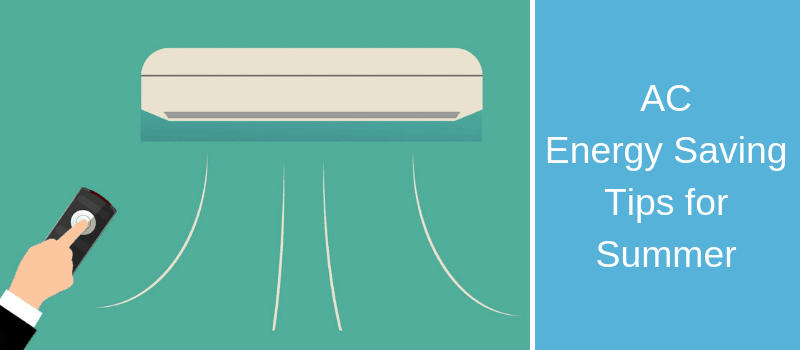Of all the appliances and equipment we use at home, the single biggest energy guzzler is probably our AC unit. Air conditioning accounts for about 12% of U.S. home energy expenditures according to the most recent Residential Energy Consumption Survey (RECS) of the US Energy Information Administration.

And if you’re located in a region that is hotter and more humid than most other areas in the U.S., that figure is bound to rise even more, especially with the kind of summers we’re having these days.
Air conditioning, however, doesn’t have to put a dent in your bank account. Energy consumption beasts our AC systems may be especially during the summer, but there are several tricks and ideas that will help reduce that bill that will come at the end of the month.
You can, for instance, get an AC tuneup done for your AC unit before the coming of the summer months. It ensures that it will run more efficiently throughout the summer, among other things.
Here are some more HVAC tips and tricks that can help you save money on your summer energy bill.
Keep the thermostat at 78 degrees.
We know it’s tempting to set the thermostat at around 72 degrees when it’s a particularly hot day, but 78 degrees would be more than enough to keep everyone in the room cool.
It may not feel that cool the moment you enter the room, but trying sitting still for about a minute or two to acclimate yourself to the temperature.
Don’t put the thermostat near heat sources.
The thermostat reads the temperature in the room where it’s located. The room could be perfectly cool, but if your thermostat is near an appliance that generates heat, such as a TV or a computer, it will continue to think the room is still warm.
As a result, it won’t be sending the AC unit any signal that the room is comfortable enough and that it can rest. The air conditioner will continue running, which isn’t doing your efforts at getting energy savings any favors.
So keep your thermostat away from any sources of heat, and make sure direct sunlight does not hit it.
Put up more shade around your property.
Sunlight will always be great, but so much of it will hit your home during the summer. The resulting excessive heat will force your AC unit to run longer and work much harder. It’s a very inefficient way to operate, but it’s what’s going to happen when your home is fully exposed to the sun’s rays.
You can counter direct sunlight by putting up more shade in and around the house. Trees would be great. You can also keep the sun out of your home with curtains, drapes, and Venetian blinds.
Plug cracks, gaps, and holes.
When your home has plenty of holes, gaps, or cracks all around, don’t be surprised if your energy bill becomes prohibitive. All that cooled air will just leak through them. Spare your AC unit the hard but very inefficient work by plugging all those leaks as soon as you can.
Dress for the weather.
If you’re just staying at home, wear tank tops, shorts, or any item of clothing that’s appropriate for the hot weather.
Keep the lights off during the day.
LED lights are efficient, but they contribute a lot to the heat inside your home that will force your AC unit to work harder. If possible, keep them turned off during the day unless you absolutely need to use them.
Turn those ceiling fans on.
Summers are hot, but there are days when the temperature is lower than usual. Those days are the perfect time to turn your ceiling fans on so you can give your AC system—and your heavy energy consumption—a break.
Clean or replace your AC unit’s air filter.
An AC tuneup before the onset of summer means your AC air filter will be clean at the beginning. A month or so later, it won’t be that anymore, so check the air filter by then and see if it needs cleaning or replacing. A clean air filter ensures optimal airflow, which is crucial to the efficient operation of an AC unit.
Apply any or all of the tips above, and you can expect a noticeable reduction in your energy bill.
Related Posts
- How to Stop Sliding Doors from Rattling – Causes and Solutions
- Cheap Ways to Heat a Room – Efficient and Budget-Friendly Solutions
- 11 Ways to Get Rid of Cooking Smells in a Small Apartment or House
- 11 Stores and Sites Like IKEA For Affordable Furniture and Home Products
- All About Polypropylene – Olefin Fabric Sofa Material
- 12 Different Types of Wood for Outdoor Furniture with Pros/Cons
Leave a Reply